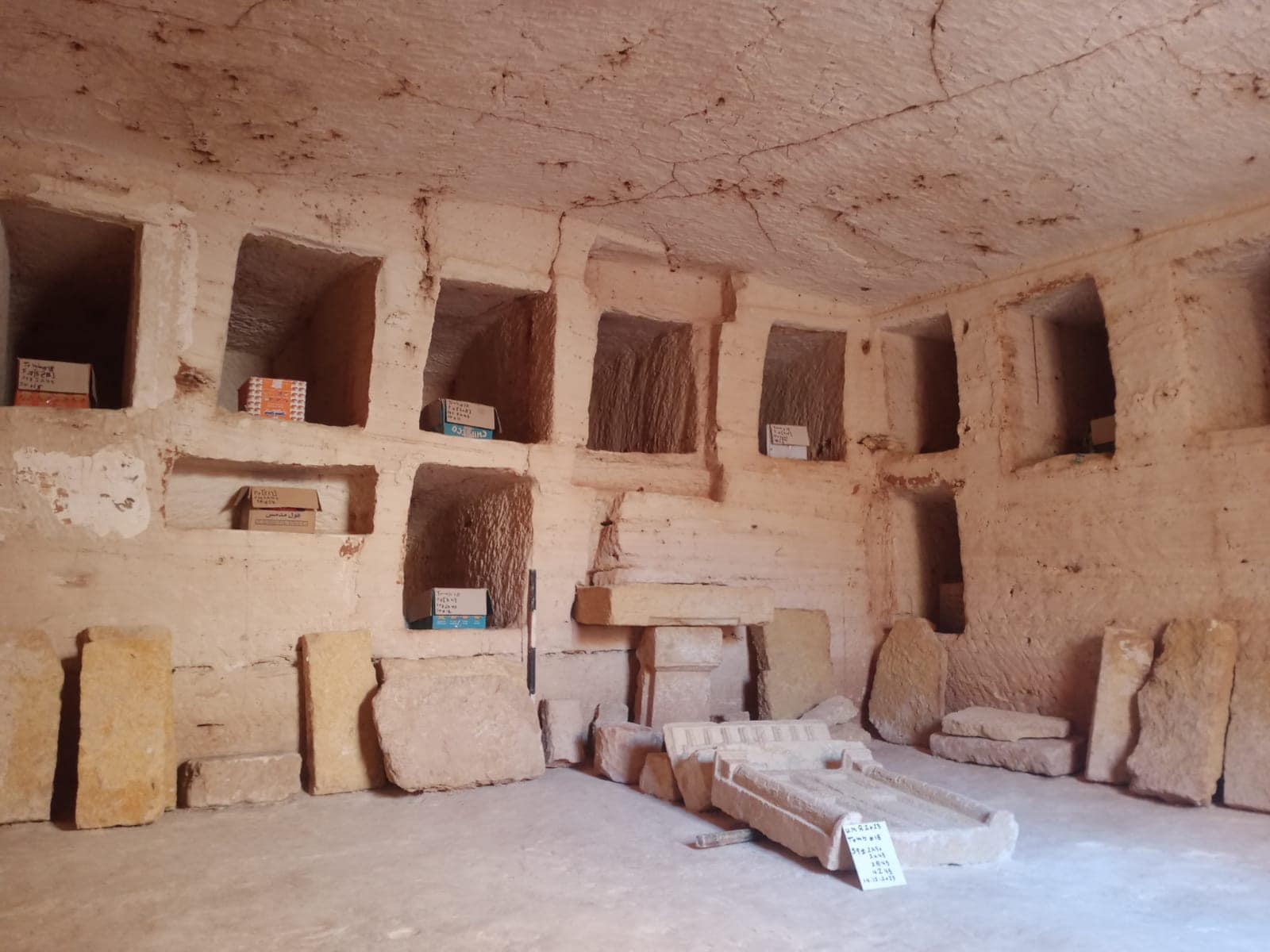An Egyptian archaeological team has uncovered a Roman-era cemetery in Marsa Matruh dating back to the 1st and 7th centuries AD during excavations at Umm al-Rakhm in Matrouh Governorate, the Ministry of Tourism and Antiquities announced on Thursday.
The mission, led by Kotb Fawzy, Head of the Administration of Northern Egypt and Sinai Antiquities, uncovered two rock-carved tombs in catacomb style, dating back to the Roman era.
The discovery includes 29 burial places, glass tombs, engraved offering tables, and several statues. Additionally, a well-preserved bathroom was found, featuring reception halls, seating areas, shower rooms, tanks, and water drainage areas.
Mohamed Ismail Khaled, Secretary General of the Supreme Council of Antiquities (SCA), highlighted the significance of the find, noting that it underscores Marsa Matruh’s role as a major hub for foreign trade in the Mediterranean.
Khaled further emphasized, “This discovery not only reflects the city’s importance during the Roman era but also throughout various historical periods.”
Expanding on the details of the discovery, Ayman Ashmawy, Head of the Egyptian Antiquities Sector, described the two Roman-era catacomb tombs.
“Each tomb features a stairway leading to a hall before the burial chamber. The main chamber, square with a vaulted ceiling, contains rock-carved loculi sealed with limestone plugs,” Ashmawy said.
He further noted, “The primary burial place includes an imaginary door flanked by two Doric columns with relief carvings. The door, topped with a Doric frieze, is situated above a limestone offering table.”





















Discussion about this post